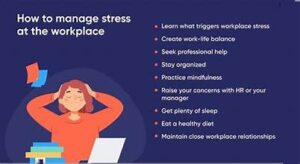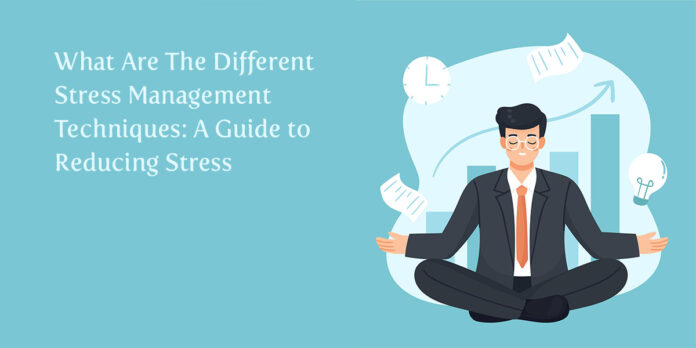
In our fast-paced world, stress has become an almost inevitable part of daily life. From demanding work schedules to personal responsibilities, finding ways to manage stress effectively is crucial for maintaining both mental and physical well-being. As we move into 2024, new research and evolving health practices offer fresh insights into managing stress. This article explores top stress management techniques and health tips to help you achieve a calmer, healthier life in the coming year.
Understanding Stress: The Basics
Before diving into stress management techniques, it’s essential to understand what stress is and how it affects the body. Stress is the body’s response to challenges or demands, whether they are physical, emotional, or mental. When faced with a stressor, the body releases hormones like cortisol and adrenaline, which prepare us to either fight or flee. While this response can be beneficial in short bursts, chronic stress can lead to a range of health issues, including anxiety, depression, cardiovascular problems, and weakened immune function.
1. Adopt Mindfulness and Meditation Practices
Mindfulness and meditation have gained widespread popularity for their effectiveness in reducing stress. These practices involve focusing on the present moment and cultivating a sense of calm.
- Mindfulness: This involves paying attention to your thoughts, feelings, and bodily sensations without judgment. Incorporating mindfulness into your daily routine can help you become more aware of stress triggers and develop healthier responses.
- Meditation: Regular meditation practice can help calm the mind and reduce anxiety. Techniques such as guided meditation, deep breathing exercises, and body scans can promote relaxation and improve overall mental health.
To get started, consider using meditation apps or joining a local mindfulness group. Aim for at least 10-15 minutes of practice each day.
2. Incorporate Physical Activity
Exercise is a powerful tool for managing stress. Engaging in physical activity releases endorphins, the body’s natural mood lifters, and helps reduce the production of stress hormones.
- Aerobic Exercise: Activities such as running, swimming, and cycling can significantly boost your mood and energy levels. Aim for at least 150 minutes of moderate aerobic exercise per week.
- Strength Training: Incorporating strength training exercises, like weight lifting or yoga, can also be beneficial. These activities not only improve physical health but also enhance mental resilience.
Finding a form of exercise you enjoy will make it easier to stick with a regular routine. Consider joining a fitness class or exploring new activities to keep your workouts engaging.
3. Prioritize Healthy Eating
Your diet plays a crucial role in how your body handles stress. Consuming a balanced diet rich in nutrients can help regulate stress levels and support overall health.
- Omega-3 Fatty Acids: Foods high in omega-3s, such as salmon, walnuts, and flaxseeds, have been shown to reduce inflammation and improve mood.
- Antioxidant-Rich Foods: Fruits and vegetables high in antioxidants, like berries, spinach, and broccoli, can help combat oxidative stress and support cognitive function.
- Limit Caffeine and Sugar: Excessive consumption of caffeine and sugar can exacerbate stress and lead to mood swings. Opt for healthier alternatives, such as herbal teas and whole grains.
Planning your meals and snacks to include a variety of nutrient-dense foods can enhance your ability to cope with stress effectively.
4. Practice Effective Time Management
Poor time management can contribute to stress by creating a sense of overwhelm. Implementing effective time management strategies can help you stay organized and reduce stress levels.
- Prioritize Tasks: Use tools like to-do lists or productivity apps to prioritize tasks based on importance and deadlines. Breaking tasks into smaller, manageable steps can make them feel less daunting.
- Set Boundaries: Learn to say no when necessary and set boundaries to avoid overcommitting yourself. Allocate time for relaxation and leisure activities to maintain a healthy work-life balance.
- Use Time Blocks: Schedule specific time blocks for different tasks and activities. This approach helps you stay focused and prevents procrastination.
By managing your time efficiently, you can reduce feelings of stress and improve overall productivity.
5. Foster Social Connections
Strong social connections provide emotional support and can help buffer against stress. Building and maintaining meaningful relationships is essential for mental well-being.
- Connect with Loved Ones: Regularly spend time with family and friends. Social interactions can provide a sense of belonging and reduce feelings of isolation.
- Seek Support: If you’re struggling with stress, don’t hesitate to seek support from a therapist or counselor. Professional guidance can help you develop coping strategies and address underlying issues.
- Join Support Groups: Consider joining support groups or community organizations related to your interests. These groups can offer additional social connections and stress-relief opportunities.
Nurturing relationships and seeking support when needed can enhance your ability to cope with stress effectively.
6. Embrace Relaxation Techniques
Incorporating relaxation techniques into your daily routine can help counteract the effects of stress and promote a sense of calm.
- Deep Breathing Exercises: Practice deep breathing exercises to activate the body’s relaxation response. Techniques such as diaphragmatic breathing or box breathing can help reduce stress and anxiety.
- Progressive Muscle Relaxation: This technique involves tensing and then relaxing different muscle groups in the body. It can help release physical tension and promote relaxation.
- Aromatherapy: Essential oils, such as lavender and chamomile, can have calming effects when used in aromatherapy. Consider incorporating these oils into your relaxation routine.
Experiment with different relaxation techniques to find what works best for you. Incorporating these practices into your daily life can contribute to a more balanced and stress-free lifestyle.
7. Get Quality Sleep
Adequate sleep is essential for managing stress and maintaining overall health. Poor sleep quality can exacerbate stress and affect cognitive function.
- Establish a Sleep Routine: Aim for 7-9 hours of quality sleep each night. Establish a consistent sleep schedule by going to bed and waking up at the same time each day.
- Create a Relaxing Sleep Environment: Ensure your bedroom is conducive to sleep by keeping it dark, quiet, and cool. Consider using blackout curtains or white noise machines if needed.
- Limit Screen Time: Reduce exposure to screens, such as phones and computers, before bedtime. The blue light emitted by screens can interfere with your body’s natural sleep-wake cycle.
Prioritizing sleep and creating a restful sleep environment can significantly impact your ability to manage stress effectively.
8. Engage in Hobbies and Leisure Activities
Pursuing hobbies and leisure activities can provide a sense of fulfillment and help you unwind from daily stressors.
- Find Your Passion: Engage in activities that bring you joy and satisfaction, whether it’s painting, gardening, or playing a musical instrument. Hobbies offer a creative outlet and a break from routine stress.
- Schedule Downtime: Set aside time for leisure activities and self-care. Balancing work and relaxation can help you recharge and manage stress more effectively.
Making time for activities you enjoy can contribute to a more balanced and fulfilling life.
Conclusion
Managing stress effectively requires a combination of strategies that address both physical and mental well-being. By incorporating mindfulness practices, physical activity, healthy eating, time management, social connections, relaxation techniques, quality sleep, and leisure activities into your daily routine, you can achieve a calmer and healthier life in 2024. Remember, finding the right balance may take time and experimentation, but the benefits of reduced stress and improved overall health are well worth the effort. Prioritize your well-being and embrace these techniques to navigate the challenges of the coming year with greater resilience and serenity.




